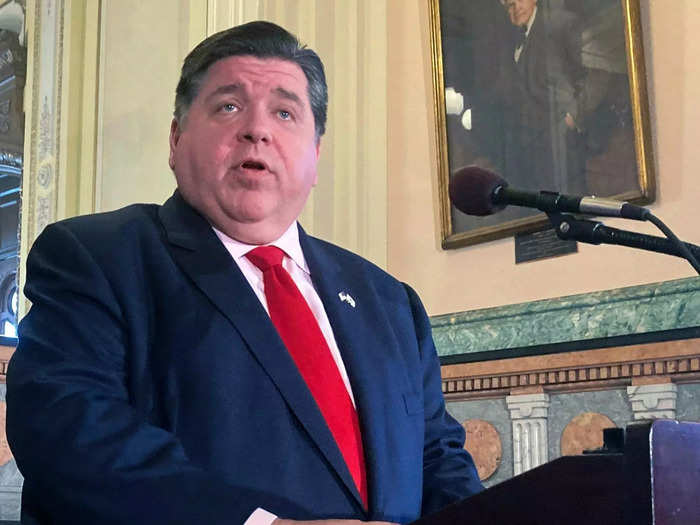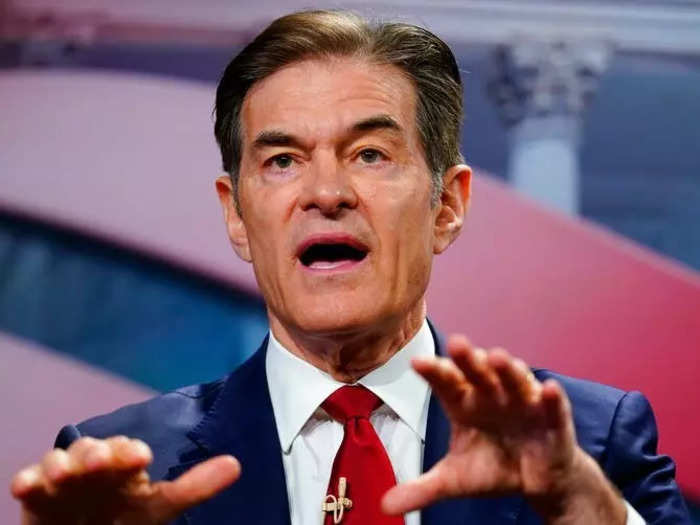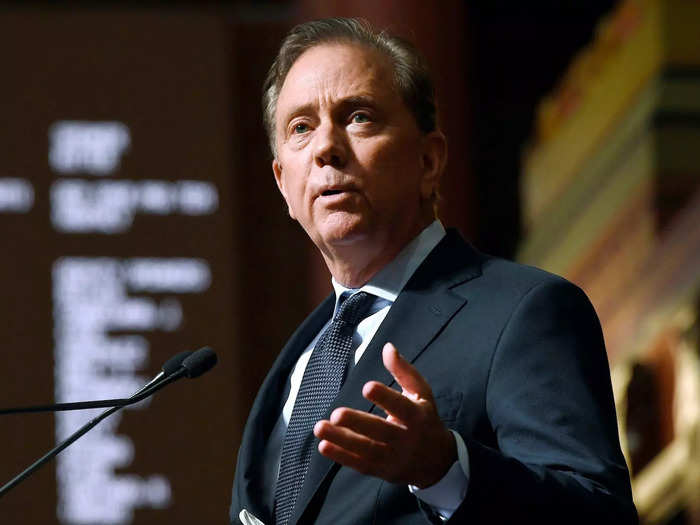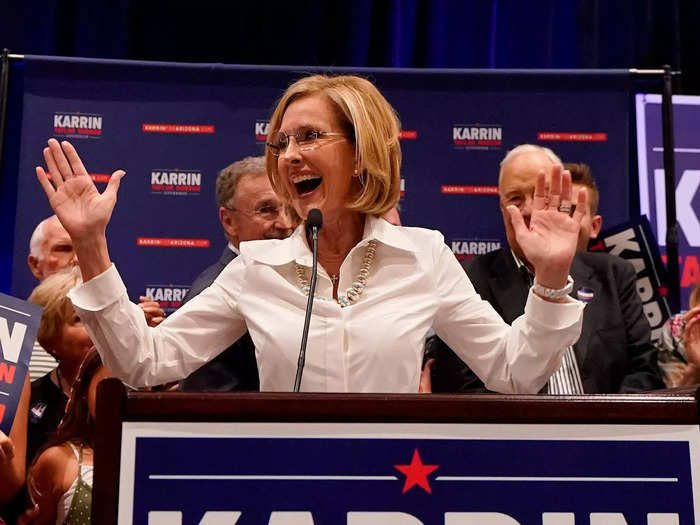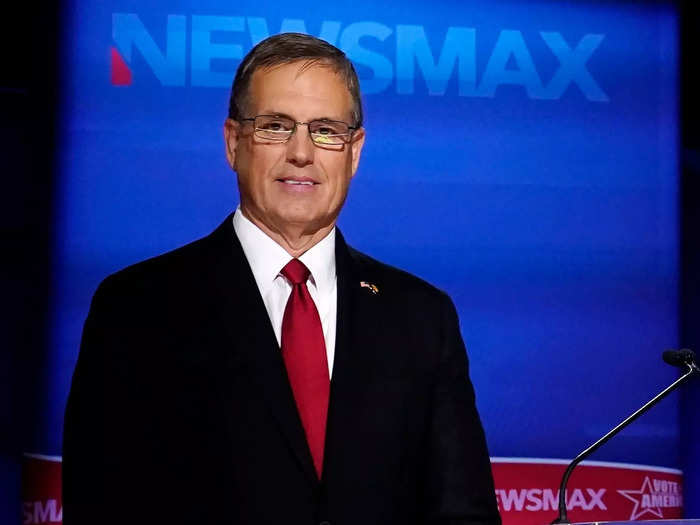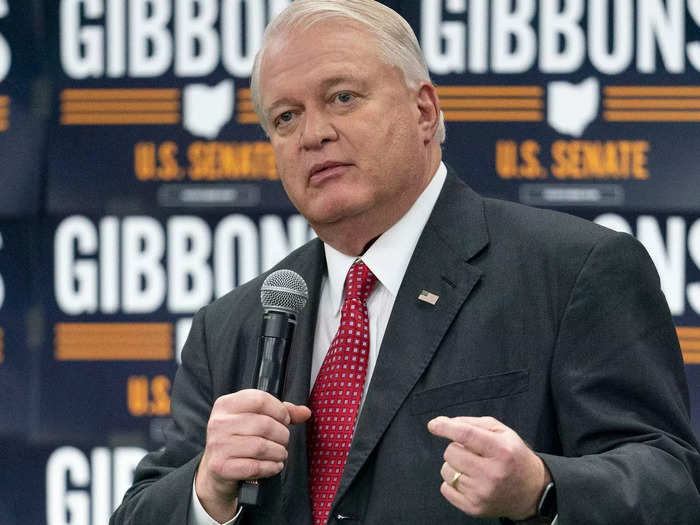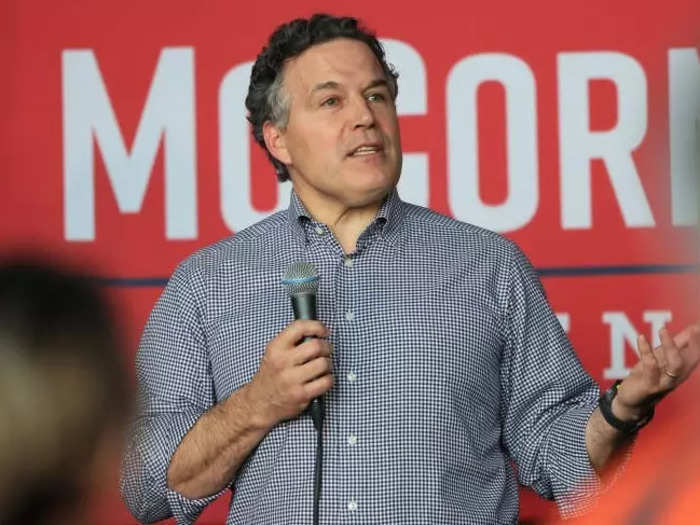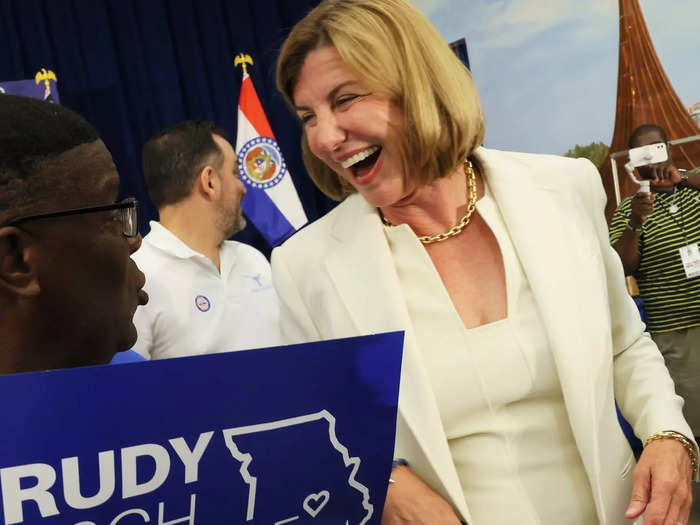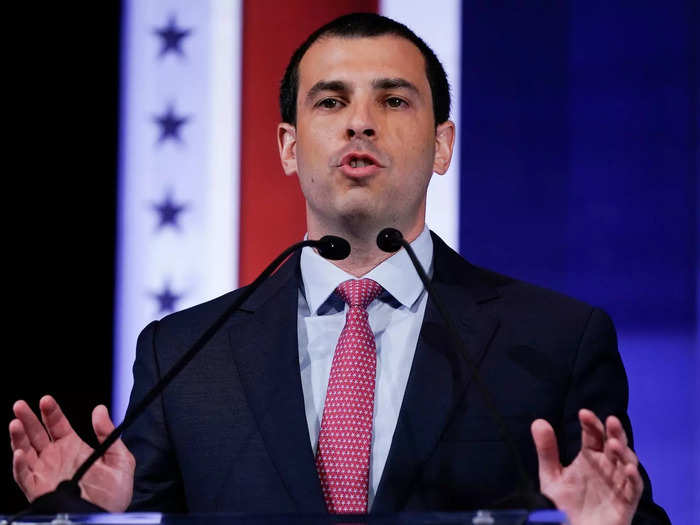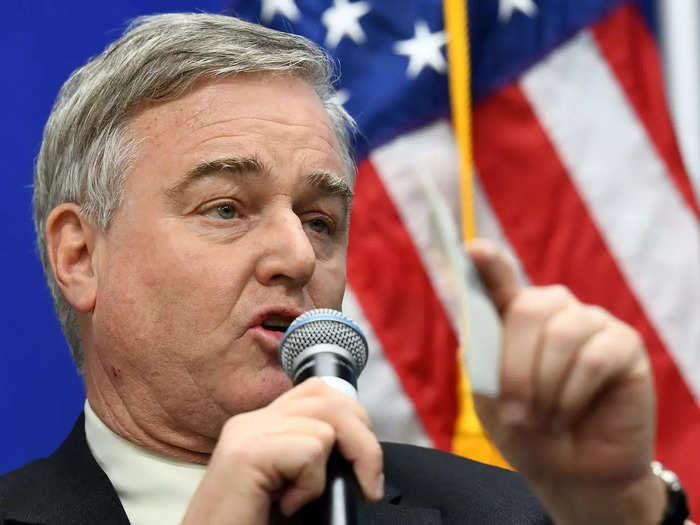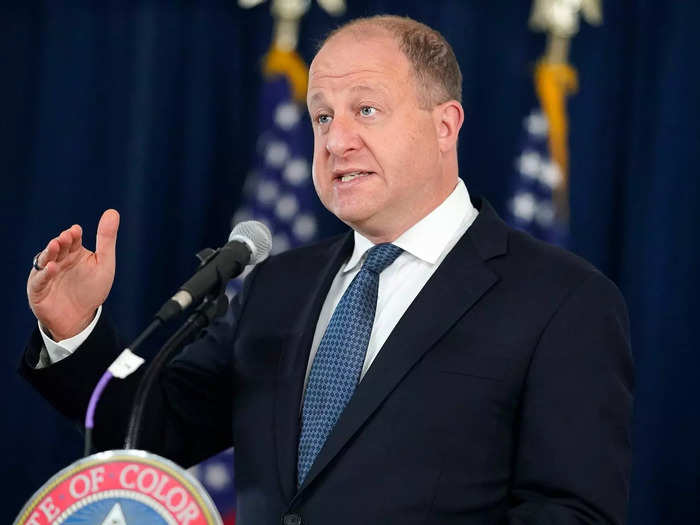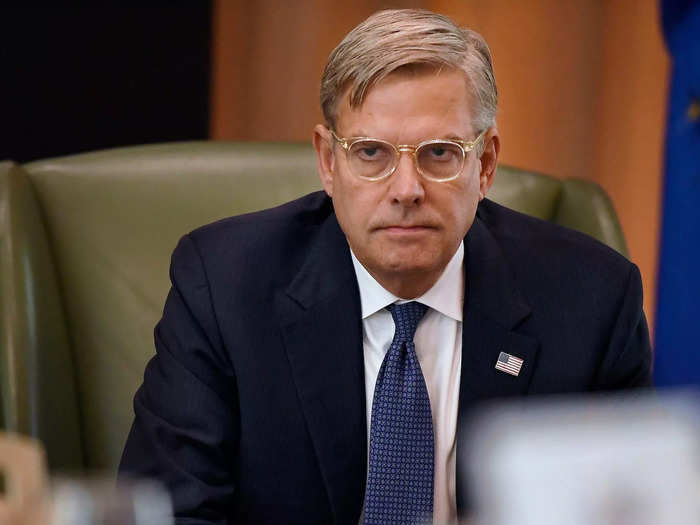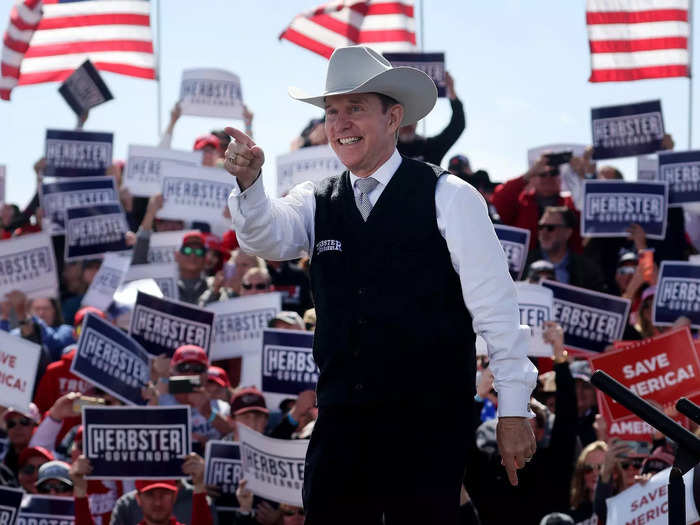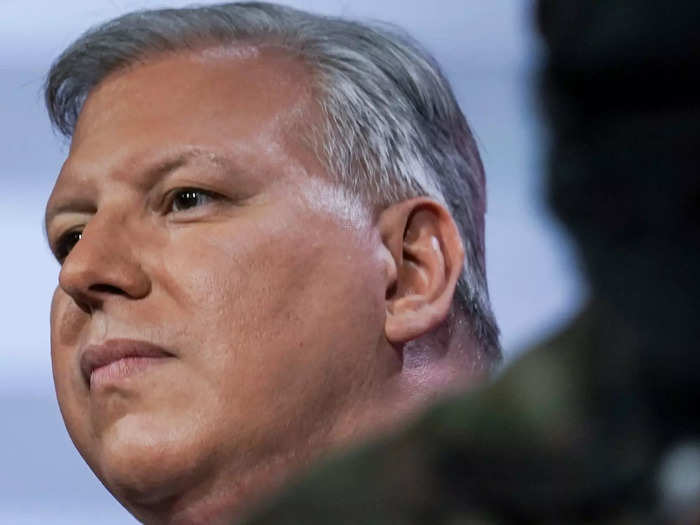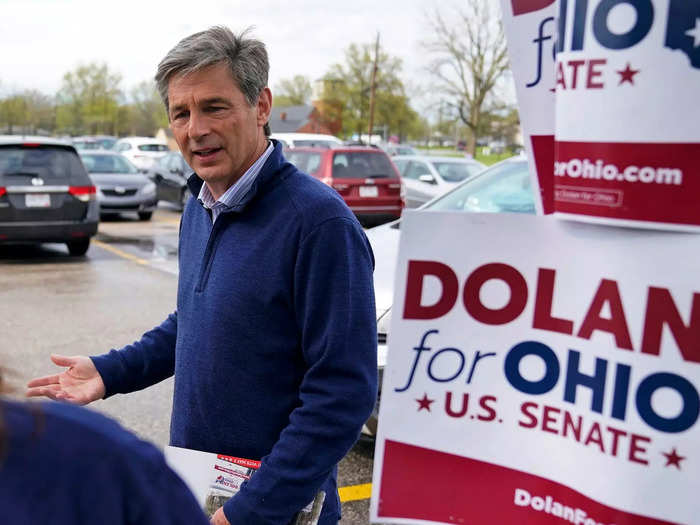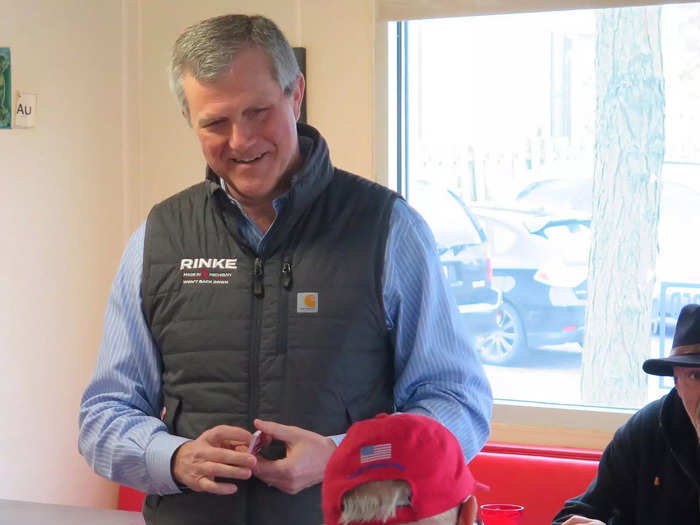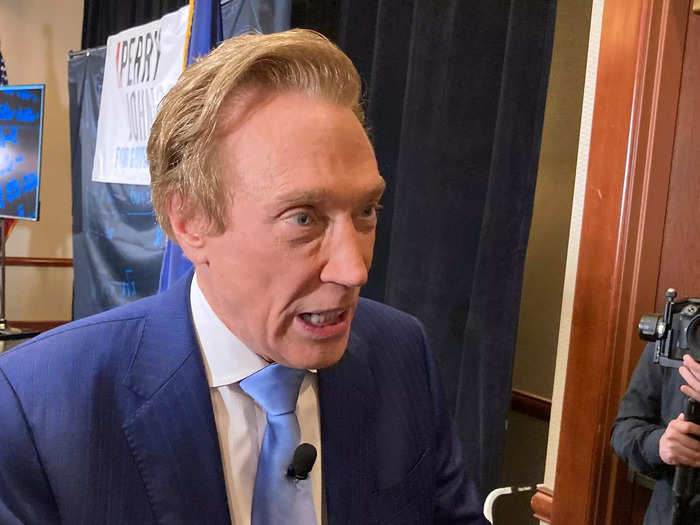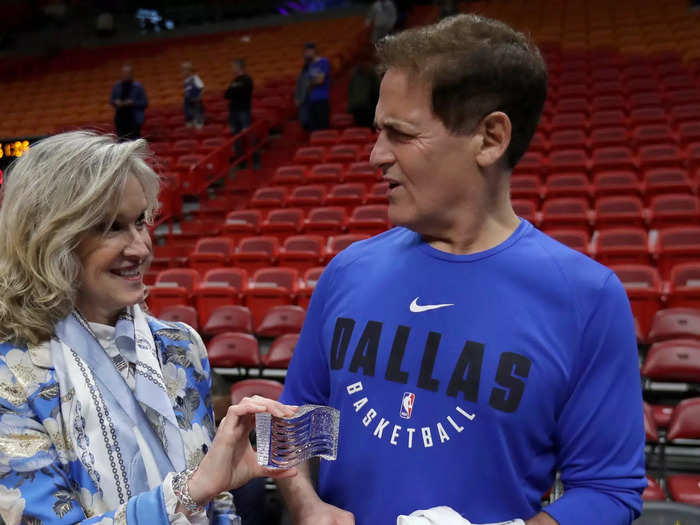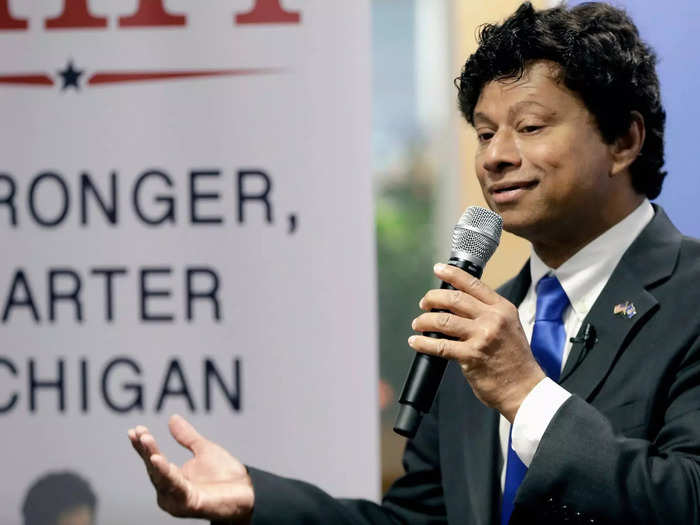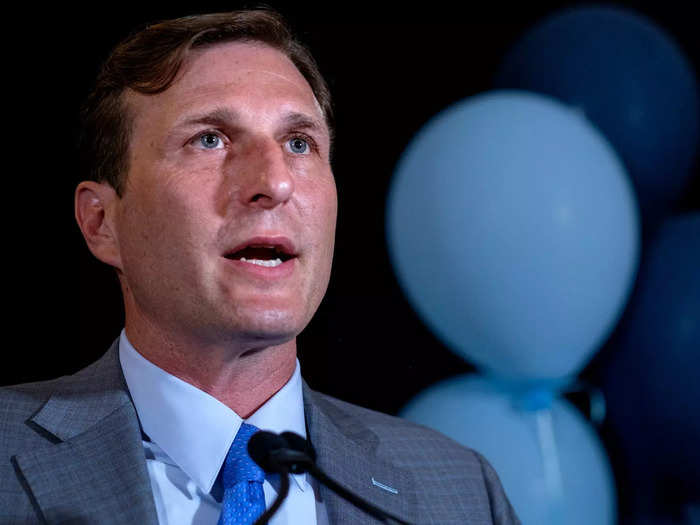The two top self-funders of the 2022 midterms, Illinois Gov. JB Pritzker, a Democrat, and Pennsylvania Republican Senate candidate Mehmet Oz.AP Images
- Together, 22 self-funding candidates have spent more than the GDP of some small countries.
- Many of the 2022 midterm's biggest self-funders were unsuccessful, but some remain locked in tight races.
A hotel heir, a former TV doctor, a construction magnate, a former US ambassador, and the sons of two top-tier professional sports owners.
This is not the setup to an elaborate joke, but rather, a cross-section of the ultra-wealthy candidates who have together spent more than $435 million (and counting) during the 2022 midterm election cycle.
Put another way: self-funding candidates have spent more money than the nation of Palau's most recent GDP or just enough to buy Colorado's Major League Soccer team.
Illinois Gov. JB Pritzker easily tops the list. An heir to the Hyatt hotel fortune, the incumbent Democrat has spent over $152 million on his 2022 reelection campaign alone.
Other political self-funders haven't been so lucky — underscoring a little-appreciated truth in politics that wealthy people who rely mostly on their own money to run often don't win the seats they're seeking.
A prime example in 2022: Lynda "Lindy" Blanchard, Trump's former US ambassador to Slovenia, who dropped more than $1.1 million into a US Senate campaign before abandoning that effort in favor of a primary challenge to Republican Gov. Kay Ivey. After Blanchard spent almost $6 million more in her second race of the election cycle, Ivey beat her anyway — by about 36 percentage points.
Despite its self-evident benefit of instant cash, self-funding a political campaign is risky. Candidates who raise gobs of money from donors, instead of their own bank account, receive the added benefit of engaging with and energizing an electorate — something that's critical to actually getting people to vote for you.
Almost all of the top self-funders thus far are white men, illustrating how the racial wealth gap can trickle down from corporate America to Congress and governor's mansions.
As for the source of their fortunes, some are clear beneficiaries of generational privilege, boasting connections to some of America's most famous brands. Others simply took the reins of family-run companies, expanding their reach. Some forged their business success themselves.
Insider analyzed federal and state campaign finance data, as well as data compiled by nonpartisan research organization OpenSecrets, to get a complete picture of the biggest spenders as of the end of October.
Here they are in the order of the size of their self-funding, as of November 2:
1. JB Pritzker, Democratic governor of Illinois: $152,050,000
Illinois Gov. JB Pritzker, a Democrat. John O'Connor, File/AP Photo
No one in politics spends like Pritzker. According to Forbes, Pritzker is the richest politician in the nation with an estimated wealth of $3.6 billion. His sister is also former Obama Commerce Secretary Penny Pritzker. Before his election, the governor ran a hedge fund with his brother. Across his two gubernatorial runs, the 57-year-old has spent more than $300 million.
That easily surpasses the annual municipal budget for Arlington Heights, Illinois, the possible future home to the Chicago Bears. The only modern political parallels to Pritzker's spending spree are Michael Bloomberg and Tom Steyer, both of whom tapped into their personal fortunes for their famously failed 2020 presidential runs.
2. Mehmet Oz, Republican US Senate candidate in Pennsylvania: $26,796,344
Mehmet Oz, a doctor and television personality running for US Senate in Pennsylvania. Matt Rourke/Associated Press
The former TV doctor skyrocketed to fame with the help of Oprah Winfrey. He continues to inject millions into the race as Republicans seek to retain a key US Senate seat against Democratic Lt. Gov. John Fetterman. Oz's latest infusion of self-funding came on October 25 when Oz cut another $2 million check to his campaign.
3. Ned Lamont, Democratic governor of Connecticut: $21,960,000
Connecticut Gov. Ned Lamont, a Democrat, speaks during his 2022 State of the State address. AP Images
Lamont and Republican Bob Stefanowski are at it again. Both candidates together spent about $19.2 million worth of their own money on their 2018 runs, a number dominated by Lamont's spending. According to CT Mirror, they are on pace to double spending this time around. Lamont's fortune, per the Mirror, comes from a variety of sources, including telecommunications, the work of his wife, Annie Lamont, a co-founder of a venture capital firm, and generational wealth. The governor's great-grandfather is Thomas Lamont, a chief executive of JP Morgan.
4. Tim Michels, Wisconsin Republican gubernatorial candidate: $18,705,882
Wisconsin Republican gubernatorial nominee Tim Michels speaks during a rally. Getty Images
5. Karrin Taylor Robson, failed Republican gubernatorial in Arizona: $18,442,527
Then-Arizona Republican gubernatorial candidate Karrin Robson addresses supporters. AP Images
Gov. Doug Ducey backed Robson, a former member of the State Board of Regents, but she was unable to overcome former broadcaster Kari Lake, who received the all-important Trump endorsement. Robson is a land use attorney and is married to billionaire real estate magnate Ed Robson.
6. Jim Lamon, failed Republican US Senate candidate in Arizona: $18,376,000
Then-Arizona Republican US Senate candidate Jim Lamon poses for a photo. AP Images
Lamon's money didn't matter, as he failed to win the GOP Senate nomination — and was unable to overcome former President Donald Trump's endorsement of venture capitalist Blake Masters. Lamon retired after founding a large-scale solar company that was purchased by Koch Industries, Inc., last year.
7. Mike Gibbons, failed Republican US Senate candidate in Ohio: $18,320,000
Then-Ohio Republican US Senate candidate Mike Gibbons speaks to supporters. AP Images
Gibbons may forever be remembered for his debate stand-off with former Ohio Treasurer Josh Mandel. An investment banker, Gibbons was a leading contender in the raucous Republican primary to replace retiring Sen. Rob Portman. In the end, Trump's endorsement helped push author JD Vance into first.
8. Dave McCormick, failed Republican US Senate candidate in Pennsylvania: $14,398,736
Dave McCormick Michael M. Santiago/Getty Images
He failed to win the Senate nomination. McCormick lost to Oz by under 1,000 votes, a razor-thin margin that follow Trump's endorsement of the former TV doctor. McCormick, a Trump Treasury Department official and former CEO of one of the world's largest hedge funds, competed vigorously for the former president's stamp of approval. But as Insider reported in February, McCormick may have actually saved $1 million by not winning the Senate seat.
9. Trudy Busch Valentine, Democratic US Senate candidate in Missouri: $14,380,737
Missouri Democratic Senate candidate Trudy Busch Valentine. Getty Images
Valentine is running against Missouri Attorney General Eric Schmitt, a Republican who is expected to win the seat that Sen. Roy Blunt is vacating. Valentine is an heiress to the brewing giant's Anheuser-Busch fortune. As Insider reported in July, Valentine has personally invested significant amounts of her wealth in health insurance companies while pledging to "stand up" to health insurers.
10. Alex Lasry, failed Democratic US Senate candidate in Wisconsin: $14,150,636
Then-Democratic US Senate candidate Alex Lasry speaks during a Wisconsin primary debate. AP Images
11. David Trone, Democratic congressman from Maryland: $12,552,000
Rep. David Trone, a Maryland Democrat. Katherine Frey/The Washington Post via Getty Images
Trone already has the record for the most personal money spent on a US House election. In fact, he broke it in back-to-back cycles in 2016 and 2018, spending $31.3 million in campaigns that saw him lose in a primary and win a House seat respectively. In 2020, he backed off — relatively speaking — spending $2.5 million. Now, the alcohol retailer founder is back in the spirit of giving from his own fortune after redistricting left him in a much more competitive seat against Republican Neil Parrott.
12. Jared Polis, Democratic governor of Colorado: $12,138,000
Colorado Gov. Jared Polis speaks during a press conference on April 20, 2021, in Denver. David Zalubowski, File/AP Photo
Polis is expected to easily prevail against Republican Heidi Ganahl. Polis made his fortune from founding tech companies, including an online florist that is now owned by FTD.
13. Bob Stefanowski, Republican gubernatorial nominee in Connecticut: $12,000,000
Connecticut Republican gubernatorial nominee Bob Stefanowski. AP Images
14. Charles Herbster, failed Republican gubernatorial candidate in Nebraska: $11,625,862
Then-Nebraska Republican gubernatorial candidate Charles Herbster smiles during an event with former President Donald Trump. Getty Images
15. Harry Wilson, failed Republican gubernatorial candidate in New York: $10,997,422
Then-New York gubernatorial hopeful Harry Wilson, a Republican, looks on during a debate. AP Images
Wilson, a former Obama administration official, failed to beat Rep. Lee Zeldin for the right to take on incumbent Gov. Kathy Hochul, a Democrat seeking her first full term. Wilson made his money over decades at some of Wall Street's top firms.
16. Matt Dolan, failed Republican US Senate candidate in Ohio: $10,597,000
Then-Ohio US Senate candidate Matt Dolan, a Republican, talks to a supporter. AP Images
Dolan failed to win the state's US Senate primary against the Trump-backed JD Vance. Prior to winning a seat in the Ohio state Senate, Dolan worked in the front office of the now-Cleveland Guardians, the MLB team owned by his father, Larry Dolan.
17. Kevin Rinke, failed Republican gubernatorial candidate in Michigan: $10,000,000
Then-Michigan gubernatorial candidate Kevin Rinke, a Republican, talks to voters. AP Images
Rinke failed to win Michigan's gubernatorial primary, falling to Trump-backed conservative news personality Tudor Dixon. Fitting to his state's history, Rinke made millions as an auto dealer.
18. Dan Dowd, failed Democratic US Senate candidate in California: $7,648,600
Dowd received under 75,000 votes in California's jungle Senate primary. A software founder, Dowd used his campaign to blast billionaire Elon Musk over Telsa's self-driving technology.
19. Perry Johnson, failed Republican gubernatorial candidate in Michigan: $7,575,000
Then-Michigan gubernatorial candidate Perry Johnson, a Republican, talks to reporters. AP Images
Johnson, too, failed to beat Dixon for the GOP's gubernatorial nomination. A founder of a government industry and certification standards firm, Johnson launched his doomed bid with a Super Bowl ad, per Bridge Michigan.
20. Lynda "Lindy" Blanchard, failed Republican gubernatorial candidate in Alabama: $7,123,178
Then-US Ambassador to Slovenia Lynda Blanchard, a Republican, presents Dallas Mavericks Owner Mark Cuban with gifts before a 2020 game. AP Images
Blanchard's big bucks won her a double dose of nothing: She pulled out of a US Senate run only to later fail in her bid to oust Gov. Kay Ivey in a GOP primary. Blanchard, who served as ambassador to Slovenia during the Trump administration, is the founder of a real estate investment firm.
21. Shri Thanedar, Democratic US House candidate in Michigan: $6,180,374
Michigan Democrat Shri Thanedar is seen here announcing his ultimately unsuccessful gubernatorial campaign in 2017. This year, he's running for Congress. AP Images
Thanedar ran unsuccessfully for governor in 2018 before winning a statehouse seat two years later. He is running in Michigan's newly created 13th Congressional District, which is viewed as leaning toward Democrats. Thanedar made his fortune in chemical testing companies.
22. Dan Goldman, Democratic US House candidate in New York: $4,888,468
New York Democrat Dan Goldman addresses supporters on the eve of his primary night victory in New York's 10th Congressional District. AP Images
Goldman is a first-time congressional candidate running in the state's 10th District. A top lawyer during Trump's first impeachment, Goldman beat out Rep. Mondaire Jones in a crowded primary field that once included former New York Mayor Bill de Blasio after Jones tried to switch seats following redistricting. Goldman is an heir to the Levi Strauss & Co. fortune.
Slide Embed
Methodology: To compile this list, Insider reviewed and analyzed state and federal campaign finance data through November 2, 2022, as well as campaign finance data compiled by OpenSecrets, a nonpartisan research organization. The contribution amounts reflect both direct self-funding contributions and personal loans from candidates to their campaigns. Some of the candidates have begun to recoup or forgive some of the funds they lent to their campaigns. The contribution amounts do not include in-kind contributions such as office space, though typically the value of such contributions are negligible.

